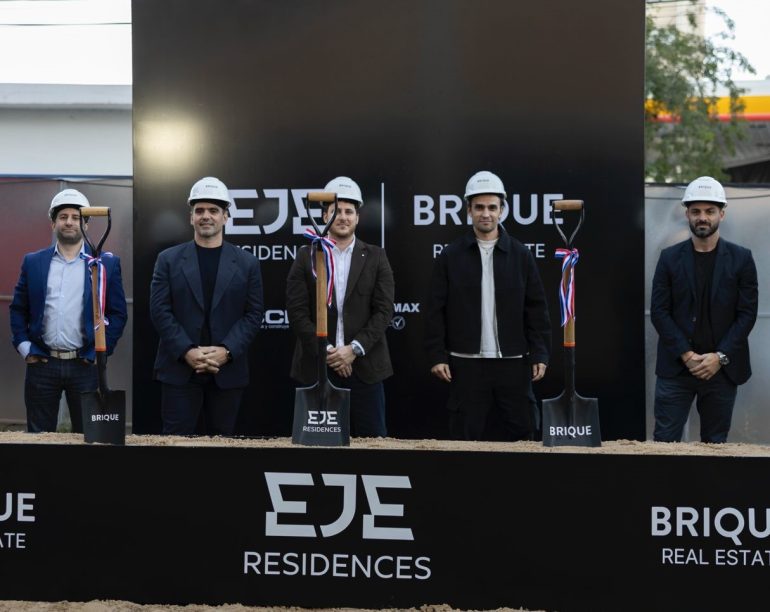Eighteen years ago, two friends in Resistencia, Argentina, decided to create something different in a province where real estate development was still finding its footing. Today, their company Brique Real Estate operates across two countries, led by four partners whose backgrounds span psychology, law, accounting, and business. An unlikely combination that has become their greatest strength.
This is the story of Brique Real Estate (Brique Desarrollos Inmobiliarios), an Argentinian-Paraguayan development company with operations in Resistencia, Argentina, and Paraguay’s capital Asunción.
The origins of a vision: how Brique Real Estate took shape
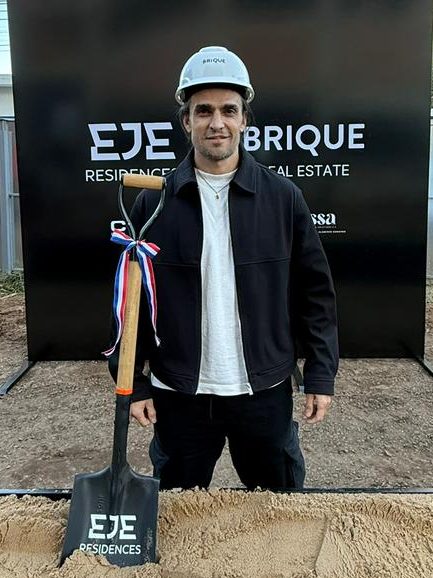
The story begins in Resistencia, the capital of Chaco province in northeastern Argentina, in 2007. Ramiro Pachecoy (now 45) and Santiago Moro (46) co-founded one of the first real estate developers in the region. Pachecoy, a lawyer specialised in trusts with a Master’s degree in Corporate Law from Universidad de San Andrés, now serves as Delegate of the Argentine Association of Trusts and Direct Investment Funds for Chaco and Corrientes.
Moro, an accountant, manages research and development of new business, finance, and ongoing project management.
Their strategy was straightforward: focus on corporate buildings with architectural precision and strong identity. As competition in Argentina intensified, they differentiated themselves through design and interior character, achieving higher sales and better rental values. Both partners also co-founded Smartbench, a technology startup that runs parallel to their real estate ventures.
Then came Facundo Roggero. At 38, this engineer from Buenos Aires brought with him a Master’s degree in business administration for construction and real estate companies and, with it, an analytical structure that would lead him into the role of project director for all incoming buildings.
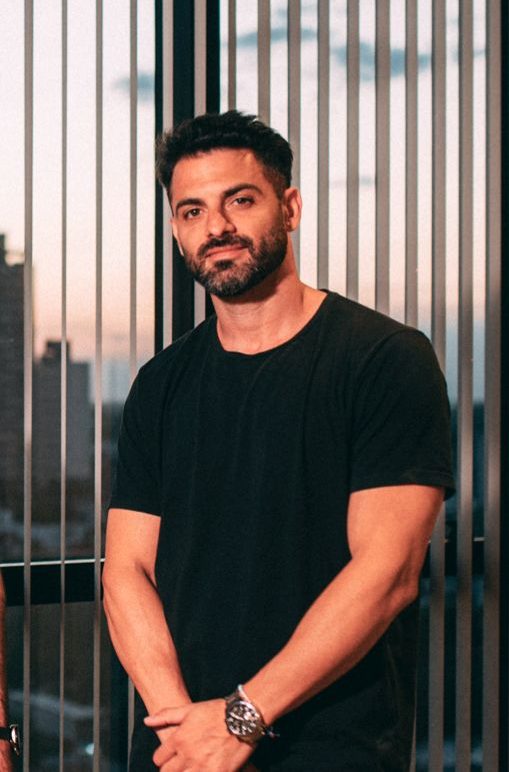
“We knew we had to adapt”
Three years ago, the partners made a decision that would test everything they had built: expand into Paraguay. They established Asunción, the capital and largest city of Paraguay, as their new operational hub.
“There are many buildings created by Argentinians for Argentinians, but we knew we needed to adapt to how people live here in Paraguay,” Roggero explains. “Even if we aim for modern design, it is essential to understand the starting point.”
Their first project in Paraguay, Eje Residence, rises 100 metres at the intersection of Asunción’s Aviadores del Chaco and Molas López avenues. A 30-storey statement in concrete and floor-to-ceiling glass that signals their entry into the Paraguayan market.
The move required local knowledge. Enter Ale Rachid and Alan Ivanier, who would become the Paraguayan pillars of the operation.
A collective spirit of entrepreneurship
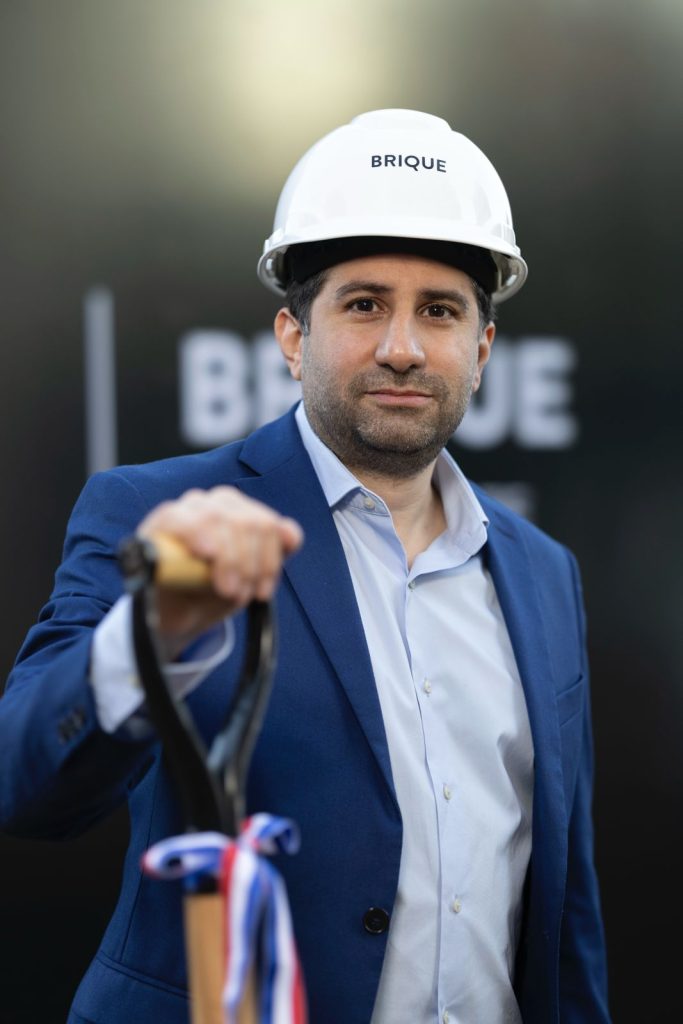
The four partners bring diverse professional backgrounds to Brique Real Estate. Ale Rachid, 42, is a forensic psychologist and criminologist trained at Kansas State University in the United States. He worked at the United Nations in New York and the Organization of American States in Washington DC before returning to South America.
Six years ago, he founded a successful payments company in Paraguay. “I never imagined getting involved in real estate,” he says. “But I saw it as a challenge, to innovate and improve the ecosystem whenever I commit to something.”
His business partner Alan, 32, originally from Resistencia, holds a degree in Business Administration from Universidad de la Cuenca del Plata and Universidad Torcuato di Tella. He began working at 17, driven by the desire for independence.
“Paraguay allows you to do things,” he states. “It offers the opportunities of a large city, but keeps the friendliness of a small town, where you are just two calls away from anyone.”
“Every time we come, the city looks more beautiful”
Ask the partners “why Paraguay?”, and the answers come quickly, and consistently. Santiago remembers visiting Asunción with his parents as a child. “We would stay at a hotel, eat sushi. We spent summers in Encarnación or San Bernardino.”
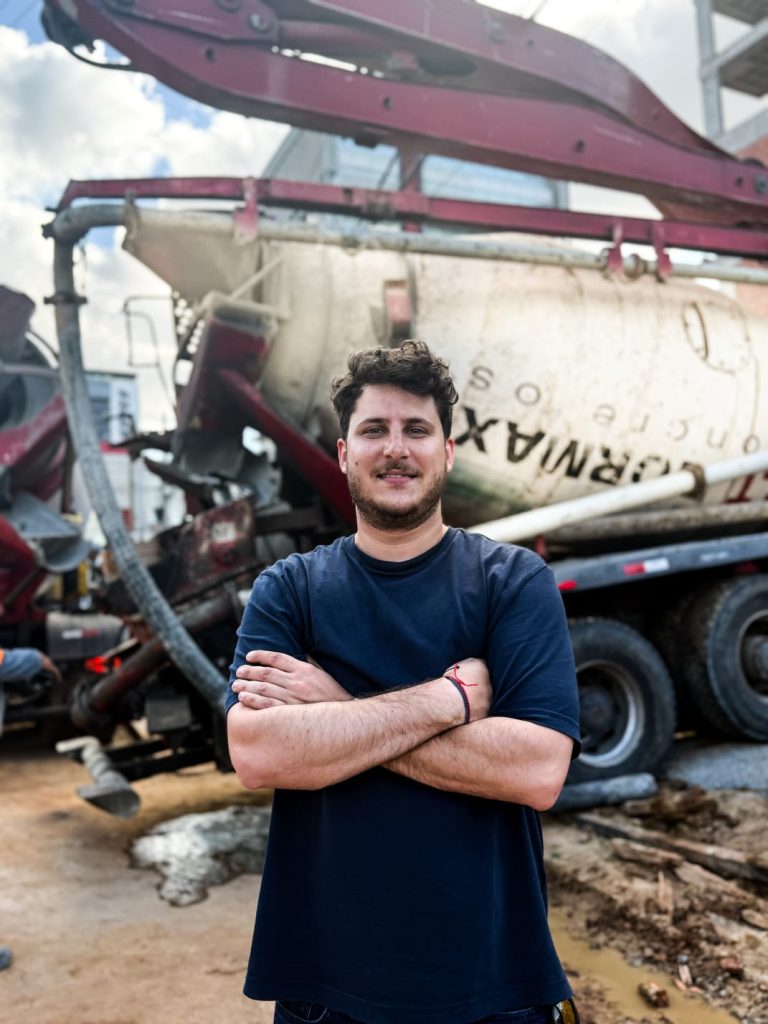
For Roggero, each visit reveals change. “Every time we come here, the city looks more beautiful. There is growth across all sectors, agriculture, financial services, gastronomy. Paraguay is a country with its foot on the accelerator.”
He pushes back against stereotypes. “In Argentina there is a stereotype that Asunción is a bubble, but the reality is quite the opposite. Here we see an economy that is growing, a market with huge potential, and it is very attractive for countries worldwide because the mentality is pro-investment.”
Ivanier observes a pattern that fascinates him: “Many Paraguayans who move abroad tend to return. Much of that has to do with the country’s quality of life. In other Latin American countries, people rarely come back. But here, they always do.”
Creating more than buildings
According to the founders, Brique Real Estate’s philosophy centres on three pillars: focus on clients, innovate constantly, and create distinctive products. The company states it aims to bring dynamism and transformation to cities.
In practice, this translates to managing business development, real estate trusts, and construction execution, whilst partnering with developers and suppliers across diverse project types: residential and mixed-use buildings, commercial premises, hotels, offices, shopping centres, and urbanisations.
The company also positions itself for investors. According to its founders, the Brique Real Estate business model offers:
- Differential pricing: Below-average pre-construction rates;
- Programmed cash flows: Scheduled fund flows during construction;
- Superior profitability: Returns significantly higher than the financial sector;
- Secure investment: Low-risk opportunities backed by proven track record.
Looking forward
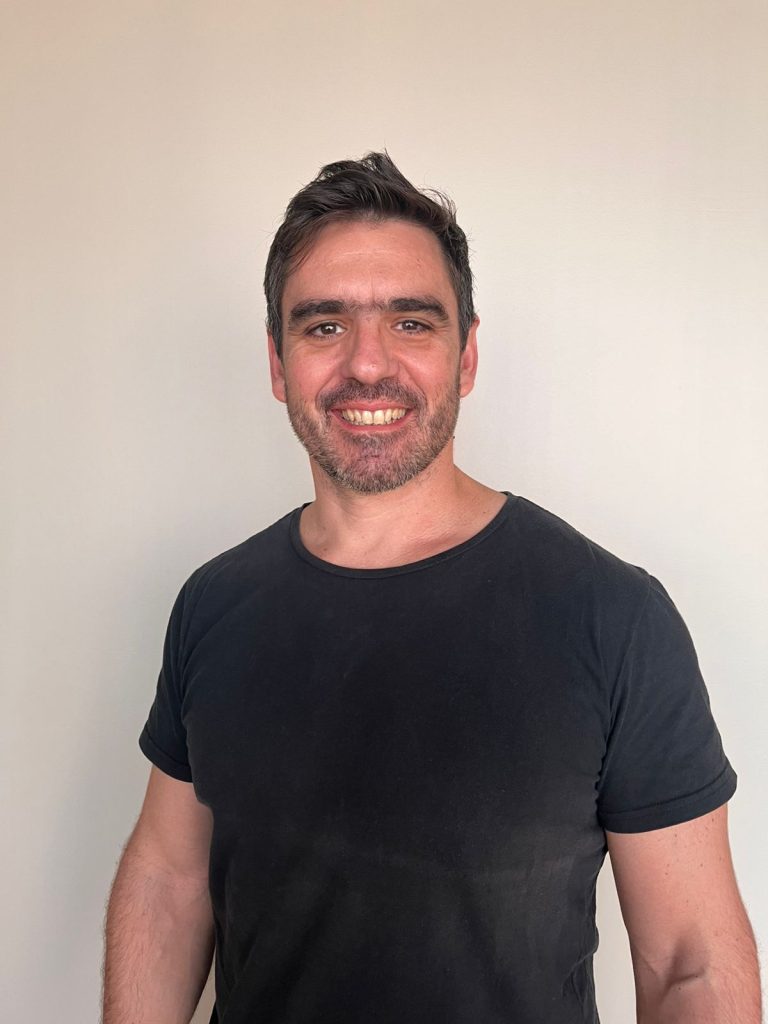
As Brique Real Estate continues operating across Argentina and Paraguay, the company represents a different model of regional expansion, one built not on replicating formulas, but on understanding local contexts.
Moro sees Asunción’s transformation accelerating. “In the last ten years, the gastronomic offering has grown enormously. Today you have a service experience comparable to other large cities in the region.”
The city’s manageable size offers practical advantages: “Because Asunción is not as large as other Latin American capitals, you can organise your time better. You avoid long commutes, and that improves your lifestyle.”
But beyond infrastructure, he values the human element: “The people have great receptivity to foreigners. You receive warmth and treatment that is very particular, compared to other countries.”
High quality of life calculations
Ivanier advocates for urban living based on quality of life calculations. “Many people live in the outskirts, far away. Living in the centre saves time and increases quality of life. It is a privilege to walk five blocks to work safely, with everything nearby: banks, pharmacies, schools, health centres.”
For Roggero, the market shift is already underway. “After the Asunción boom, comes evolution. It is no longer about building for the sake of building. The local public now knows exactly what it wants.”
That evolution, from boom to maturity, is precisely where Brique Real Estate positions itself. Four partners, two countries, and eighteen years of experience, applying what they have learned in markets that demand more than buildings. It demands understanding.
Connect with Brique Real Estate
For more information about projects and investment opportunities, visit Brique Real Estate’s website, or find Brique Real Estate on Instagram.

